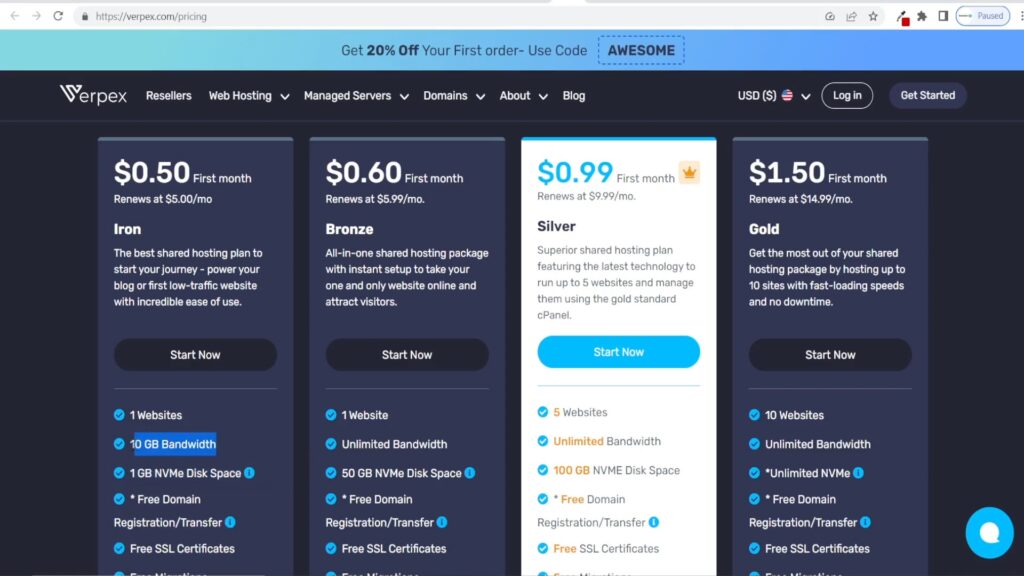As your website grows and attracts more visitors, you may find that your hosting plan is no longer sufficient to handle the increased traffic. Slow loading times, downtime, and other performance issues can have a negative impact on user experience and search engine rankings, which is why it’s important to upgrade your hosting plan when your website traffic increases. In this article, we’ll explore the reasons why you may need to upgrade your hosting plan, the different types of hosting plans available, and how to choose the right one for your needs.
Why Upgrade Your Hosting Plan?
There are several reasons why you may need to upgrade your hosting plan when your website traffic increases:
- Performance issues: If your website is experiencing slow loading times, downtime, or other performance issues, it’s a sign that your hosting plan may not be able to handle the increased traffic.
- Storage and bandwidth limitations: If your website has a lot of media files, such as images and videos, or if you’re seeing a lot of traffic spikes, you may need more storage and bandwidth than your current hosting plan can provide.
- Security concerns: As your website becomes more popular, it may become a target for hackers and malware attacks. Upgrading your hosting plan can provide better security features, such as SSL certificates and malware scans, to protect your website and its visitors.
Types of Hosting Plans
There are three main types of hosting plans available: shared hosting, VPS hosting, and dedicated hosting. Let’s take a closer look at each of these options:
- Shared Hosting: This is the most affordable type of hosting plan, where multiple websites share the same server resources. While this can be a good option for small websites with low traffic, it may not be able to handle the increased traffic that comes with a growing website.
- VPS Hosting: VPS (Virtual Private Server) hosting is a step up from shared hosting, where a physical server is partitioned into multiple virtual servers, each with its own dedicated resources. This provides more control and flexibility than shared hosting, as you can customize your server settings and install your own software. VPS hosting is suitable for websites with moderate traffic and resource requirements.
- Dedicated Hosting: Dedicated hosting is the most expensive type of hosting plan, where you have an entire physical server dedicated to your website. This provides the highest level of performance, control, and security, as you have complete access to all the server resources. Dedicated hosting is suitable for high-traffic websites or applications that require a lot of processing power and storage.
Choosing the Right Hosting Plan
When choosing a hosting plan, there are several factors to consider, such as your budget, website traffic, resource requirements, and level of technical expertise. Here are some tips to help you choose the right hosting plan for your needs:
- Assess your website traffic and resource requirements: Take a look at your website analytics to determine how much traffic your website is receiving, and what resources it requires to function properly. This will give you a better idea of the type of hosting plan you need.
- Consider your budget: Hosting plans can vary greatly in price, so it’s important to choose one that fits within your budget. However, don’t sacrifice performance and security for a lower price.
- Evaluate the hosting provider’s reputation and support: Look for a hosting provider that has a good reputation and provides reliable support. This can help ensure that your website is up and running smoothly, and that any issues are resolved quickly.
- Check the hosting plan’s features: Make sure the hosting plan you choose includes the features you need, such as SSL certificates, backups, and malware scans.
- Consider the level of technical expertise required: Some hosting plans may require more technical expertise than others, such as dedicated hosting. If you’re not familiar with server administration, it may be best to choose a hosting plan with a user-friendly control panel and technical support.
Upgrading your hosting plan is essential when your website traffic increases to ensure optimal performance, security, and user experience. There are different types of hosting plans available, each with their own advantages and disadvantages, so it’s important to choose one that fits your needs and budget. By considering your website traffic, resource requirements, hosting provider reputation, and technical expertise, you can make an informed decision and upgrade your hosting plan with confidence.

